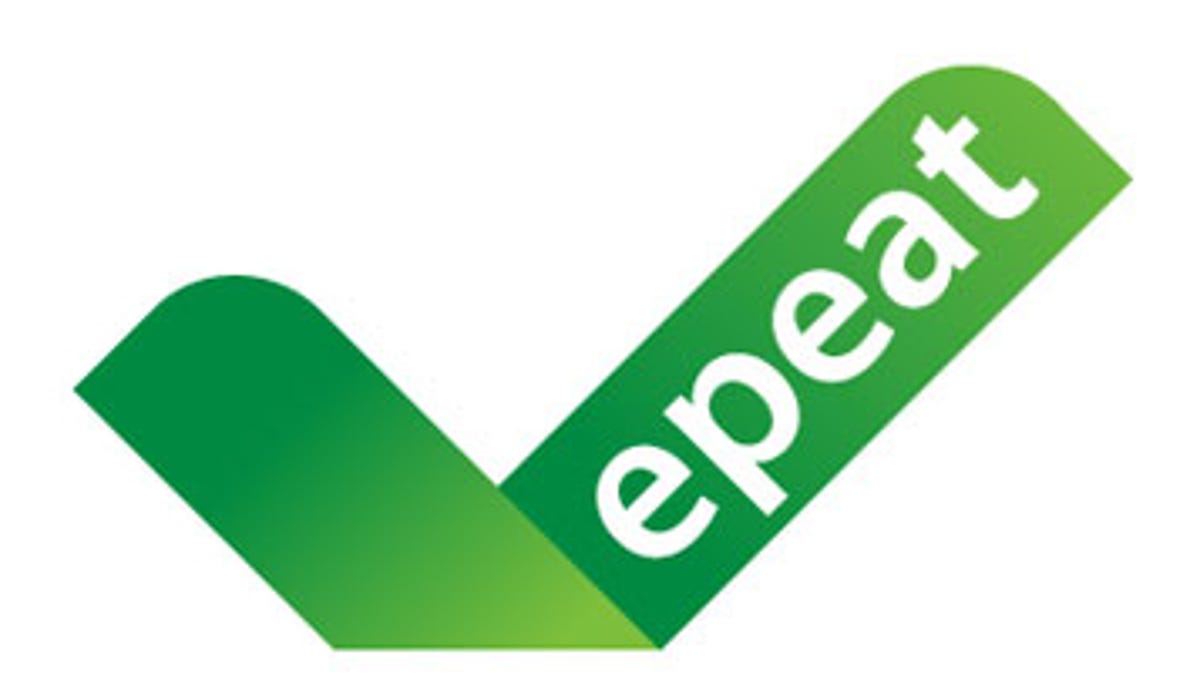Apple reverses course, re-ups with EPEAT green standard
The company rethinks a decision it made last month to drop out of the Electronic Product Environmental Assessment Tool's program.

Apple is once again a part of the Electronic Product Environmental Assessment Tool group, which rates electronics for their greenness.
Last month Apple quietly ended its participation with EPEAT. In a statement earlier this week, Apple said its products were still made to meet the Energy Star 5.2 guidelines and that it posts extensive information about its environmental efforts on its Web site.
In a new letter, Apple's soon to be outgoing hardware engineering chief, Bob Mansfield, said the company will once again have its products rated by the organization:
We've recently heard from many loyal Apple customers who were disappointed to learn that we had removed our products from the EPEAT rating system. I recognize that this was a mistake. Starting today, all eligible Apple products are back on EPEAT.
It's important to know that our commitment to protecting the environment has never changed, and today it is as strong as ever. Apple makes the most environmentally responsible products in our industry. In fact, our engineering teams have worked incredibly hard over the years to make our products even more environmentally friendly, and much of our progress has come in areas not yet measured by EPEAT.
For example, Apple led the industry in removing harmful toxins such as brominated flame retardants (BFRs) and polyvinyl chloride (PVC). We are the only company to comprehensively report greenhouse gas emissions for every product we make, taking into account the entire product life cycle. And we've removed plastics wherever possible, in favor of materials that are more highly recyclable, more durable, more efficient, and longer lasting.
Perhaps most importantly, we make the most energy-efficient computers in the world and our entire product line exceeds the stringent ENERGY STAR 5.2 government standard. No one else in our industry can make that claim.
We think the IEEE 1680.1 standard could be a much stronger force for protecting the environment if it were upgraded to include advancements like these. This standard, on which the EPEAT rating system is based, is an important measuring stick for our industry and its products.
Our relationship with EPEAT has become stronger as a result of this experience, and we look forward to working with EPEAT as their rating system and the underlying IEEE 1680.1 standard evolve. Our team at Apple is dedicated to designing products that everyone can be proud to own and use.
Bob
The company's original withdrawal from the program sparked concern among the business-minded that it would affect purchasing of Apple's products by governments and other organizations, which require some of their purchasing orders to hold EPEAT certifications. That includes the City of San Francisco, which said earlier this week that the change meant it would not be able to purchase Apple computers, something city officials later clarified as not an outright ban.
In a statement on EPEAT's Web site, CEO Robert Frisbee said Apple's new move was a "natural alignment" between to the two parties.
"As Apple drives innovation in product design, EPEAT drives innovation in standards design. EPEAT has pioneered voluntary standards, after-market verification, optional criteria, and tiered product certification as ways to keep pace with a fast-paced industry," he said.
As noted earlier this week, EPEAT focuses specifically on hardware recycling versus toxins and carbon emissions from the products themselves. The organization is made up of hardware manufacturers, recyclers, and advocacy groups, and rates products in a similar fashion to the Olympics, with gold, silver, or bronze awards based on the group's testing in various categories.
Per Apple's ratings on the site now, the company is now listed with 40 EPEAT-cerified products, all of which are rated at the group's gold standard in both the United States and Canada. That includes desktops, notebooks and the company's display products. Not included are the company's portable devices like the iPods, iPhones and the iPad. Those products are not included in EPEAT's current standards testing, though Apple runs a separate recycling program for them.
"We applaud Apple for 'thinking green, not greedy' and listening to its customers' calls not to pit design needs against the environment," Greenpeace International spokesperson Casey Harrell said about the move in a statement.
"A large and growing number Apple customers have challenged the company to be an environmental leader, whether that be by rejoining EPEAT, eliminating toxic chemicals from its products, or powering its iCloud with renewable energy."
Harrell added that the watchdog group is still waiting for "more details" about Apple's efforts to make some of its products easier to recycle and upgrade.
Update, 11:02 a.m. PT: adds more information throughout, and once again at 12:55 p.m. PT with comment from Greenpeace.

